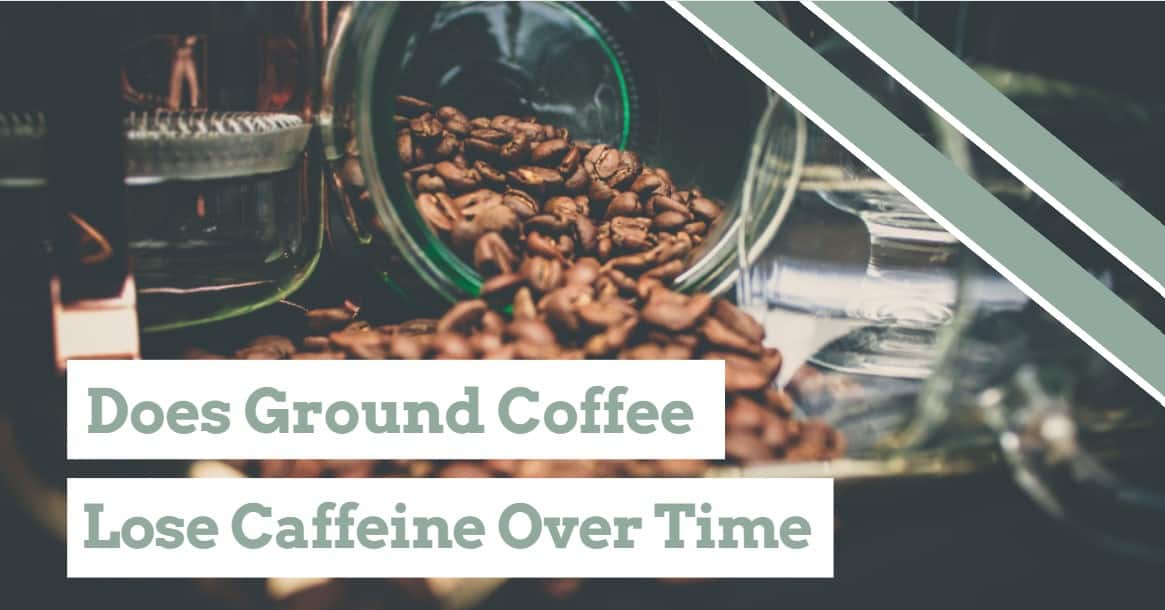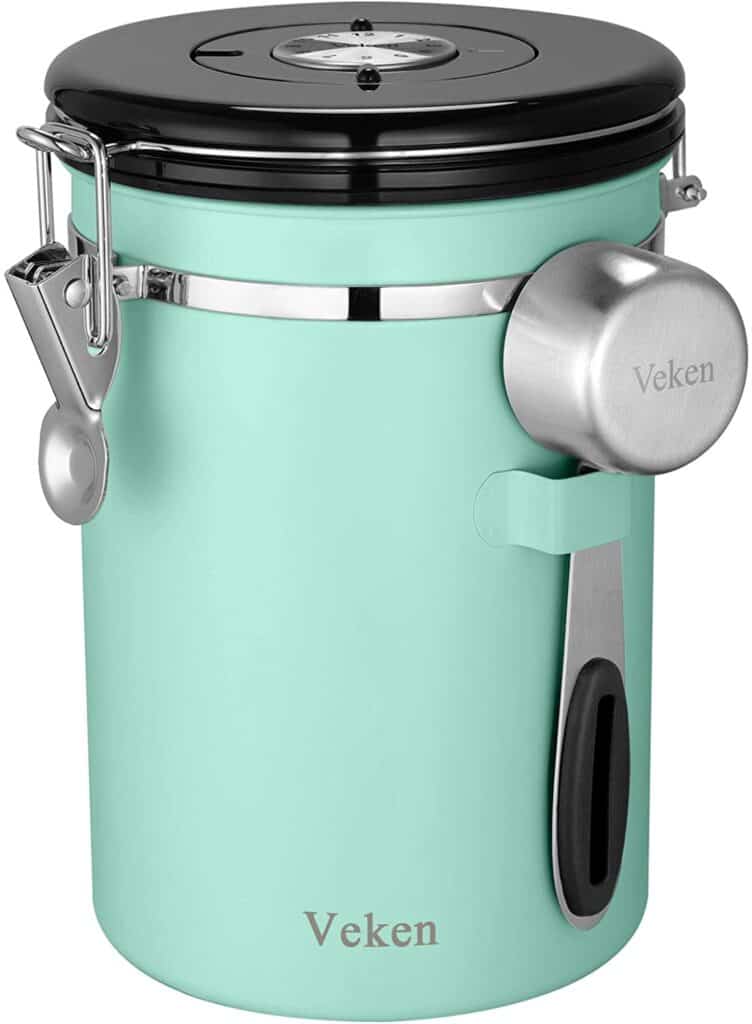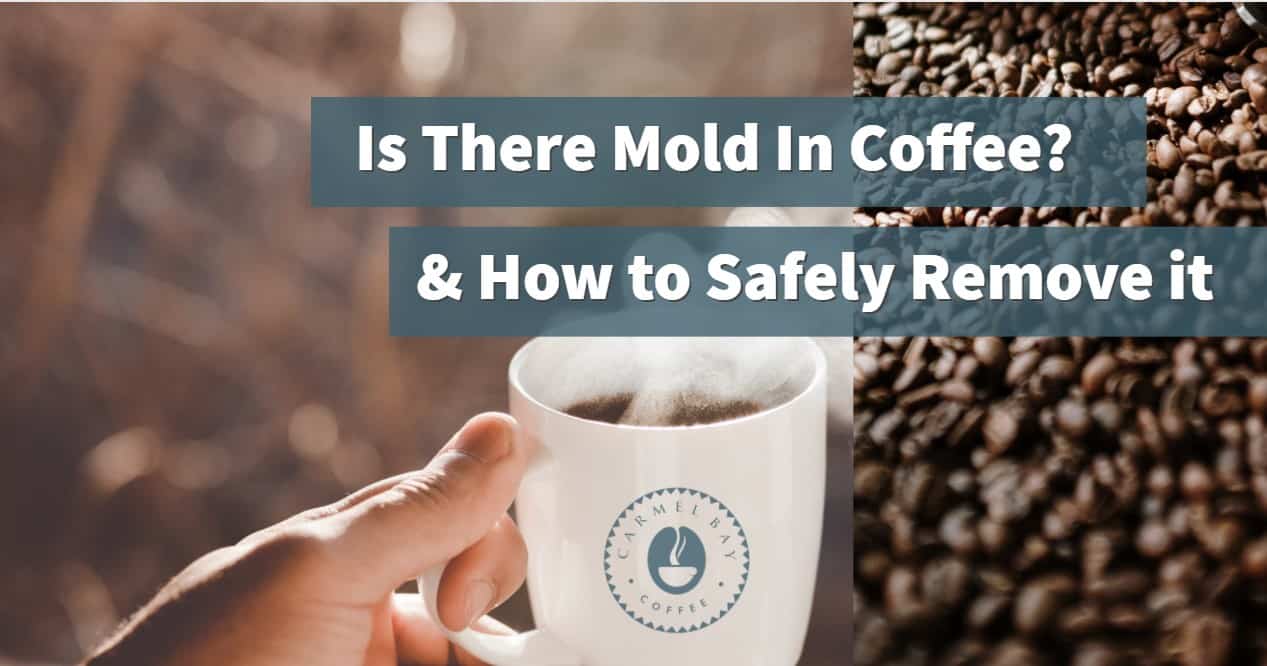Coffee is that sweet and magical nectar that can sometimes make or break a day.
There are a ton of possible variables that can alter the mood of a stressful morning. But nothing is quite as bad as discovering your precious coffee reserve has been depleted, with no time to restock before work.
So, we tend to stock up on this sensational commodity. But should we be buying this delicious resource in bulk? Will it go bad if we don’t use it quick enough?
The answer is, not really. Coffee beans and coffee grounds don’t typically spoil; it just turns stale and bitter.
Nothing lasts forever but using proper methods and techniques, the freshness of your coffee can be extended.
If you’re like me, you basically worship the stuff (The line between “morning coffee routine” and “morning crutch” is becoming an increasingly thinner veil.), so why wouldn’t you want the best bang for your buck?
How Long Does Coffee Last After It’s Been Grounded
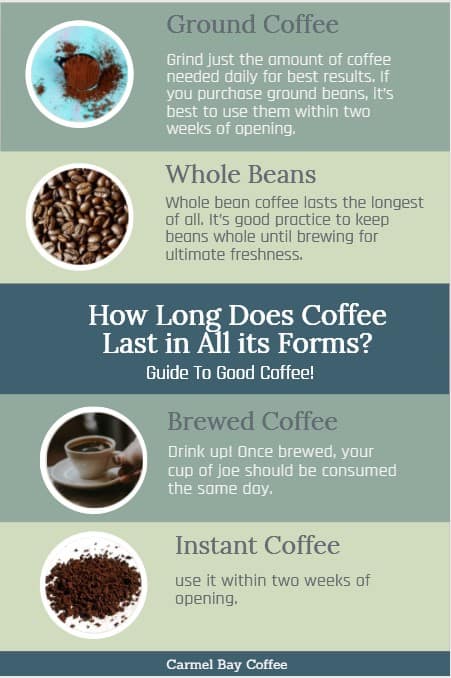
Ground coffee typically has three to five months “best by” date if sealed airtight, and roughly two weeks if opened and exposed.
Things get a little tricky when it comes to the shelf life of coffee.
That delicious brew might make you feel immortal, but despite a lengthy “best by” date, the quality itself has a rapid shelf life.
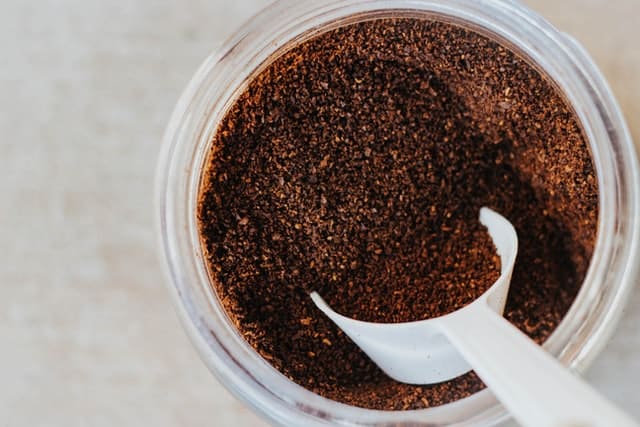
Ground coffee maintains optimal full flavor within a 1-to-2-week window after roasting. Grounds may have a yearlong “best by” date, but almost all the flavor and aromas will have evaporated entirely by then. This leaves coffee with a very bitter and pungent taste.
This is why you always shop for coffee based on its roasting date rather than its expiration date.
Although it might not be as desirable, stale coffee still holds plenty of kick to say hello to those adrenal glands. Caffeine is the strongest property dwelling within coffee. It will remain even when all the flavor and aroma have withered away.
Check out our article all about How Long Caffeine Last in Coffee, if you’d like to explore further.
If you experience issues with coffee grounds, maybe try switching to whole beans instead.
Beans maintain freshness for much longer. Not only do they have a longer roasting date, but they do a much better job at retaining their aroma and flavor from evaporating.
How Long Does Brewed Coffee Last
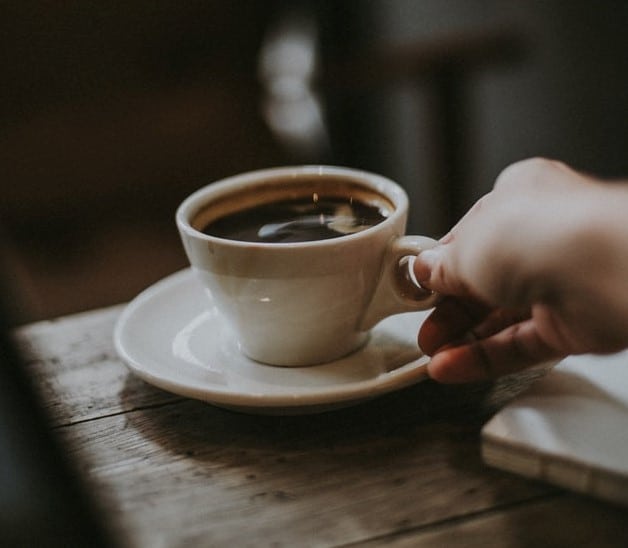
After the coffee is brewed, it’s best to drink up right away. If you’re going to be sipping on it throughout the day, that’s fine, but you shouldn’t leave it out at room temp longer than 12 hours.
If you made too much coffee and don’t want to waste it, then go ahead and put it in the refrigerator. Your brewed coffee will be perfectly fine for three or four days inside the refrigerator.
Please take a look at my article all about how to make iced coffee at home. This is a great way of reducing waste and reusing your coffee.
How To Store Coffee Beans to Keep Them Fresh
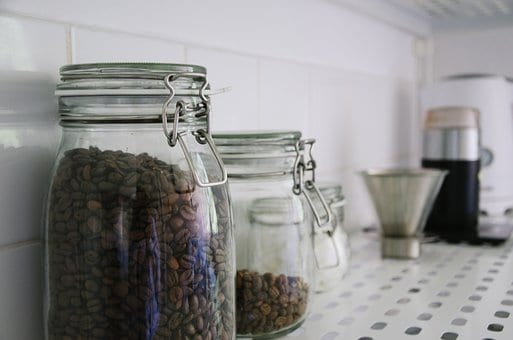
Coffee is incredibly resilient, but it’s flavors, and natural oils will evaporate quickly if poorly stored.
The first trick here is to follow the “less is more” rule.
You might save a buck purchasing big bulk brands, but it’s recommended to store a lesser amount.
Although coffee usually has a shelf life of about 3 to 5 months (depending on the brand), its quality rapidly degrades as soon as it’s opened. Storing fewer grounds will provide you with better quality always.
For example, I make a coffee run about every two weeks or so.
No matter the amount, always store coffee in a dark, dry, and cool location. Keep the temperature cool and consistent, and coffee thrives in stable climates.
Coffee oxidizes quickly, so be sure to use an airtight container as well. Always use a glass container, as plastic might warp and lose its seal.
Sometimes it’s best not over to complicate things and keep coffee in the bag it came in. Do you know that weird plastic hole at the top of most coffee bags? That’s called a one-way valve (also known as a gas release valve). This valve releases gasses that coffee naturally builds up but without letting any air back into the bag.
The Best Way to Store Fresh Coffee
Effectively storing coffee all starts at the store, not the pantry. Your choice of coffee is everything. The brand, the roast date, and even whole beans or grounds. But many aspects of these choices are universal.
Never keep coffee beans in a warm environment, maintain with an airtight seal, and always avoid moisture in a dark environment.
f the package is torn or doesn’t have a one-way gas valve, immediately transfer it into a separate container.
A popular yet fiercely debated method of java preservation is freezer storing.
Some people will claim this is a war crime, but many experts believe this tactic to be effective. One of these experts is Erika Vonie.
Erika is the Director of Coffee at Trade, a successful coffee subscription service. She claims that the freezer offers all the elements required for proper storage.
“it’s definitely away from sunlight, it’s definitely at a stable temperature, and if it’s in its original package, it can be degassed.”-Erika Vonie.
Chilling coffee in the freezer can extend its freshness up to 2 weeks. Also, since coffee doesn’t retain any moisture, the grounds require no defrosting. Pull those busy beans straight out of the freezer, and you’re good to brew.
Make sure you avoid any moisture. Otherwise, you’ll end up with an ice block of caffeine.
Again, I can’t stress this enough, make sure whatever you store it in is airtight.
You can take a look at this air tight coffee container, which will work great for storing your beans.
How to Tell if Coffee Beans is Bad
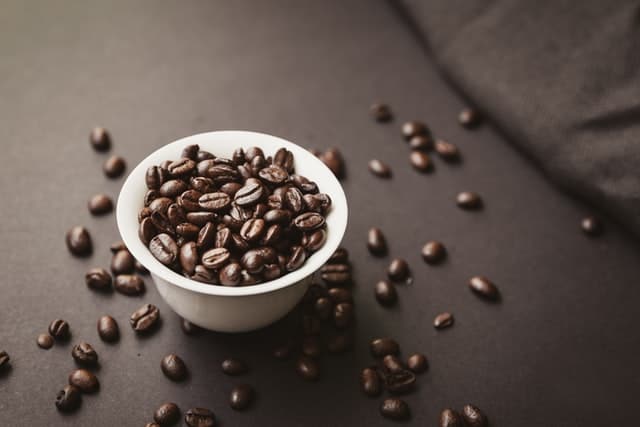
Essentially, coffee doesn’t really go bad. It just loses its aroma and flavor giving it a harsh and bitter taste. It’s usually totally fine to drink coffee past its printed expiration date, but it’s not going to be the most pleasant cup of joe.
Stale coffee still does the trick in a pinch situation, but that isn’t my Sunday coffee of choice.
Like everything else, it depends on the quality of the product. Coffee doesn’t usually visibly spoil. The color might fade a bit, but it doesn’t typically mold since it doesn’t retain moisture. If you are ever unsure, you can always use the good old-fashioned sight and smell test.
After the coffee has gone “bad,” it still holds a high concentration of caffeine.
In fact, you can make coffee with previously brewed grounds and still receive a pleasant surge of energy. But I absolutely do not recommend doing this…gross.
Before purchasing coffee, inspect the bag at the store for any potential rips or tears that could have exposed the grounds/beans to air or moisture.
What if there is mold in your coffee?
Mold is a type of fungi that can grow in moist areas, such as on your coffee beans. If you’re not sure if there’s mold in the coffee grounds because it doesn’t look like anything recognizable, don’t worry! There are ways to tell for certain and what to do about it. I go in-depth about this topic in this article, Is There Mold In Coffee?
Wrapping Up, Can Coffee Go Bad
Coffee doesn’t really go bad; it’s just not as good. The flavor changes and becomes more bitter over time, but the coffee will still be safe to drink. If you are looking for a way to preserve your supply of coffee until there is no chance that it would spoil, consider getting an airtight container or using vacuum sealer bags that can protect against oxygen exposure and humidity.
If your coffee has a cloudy appearance, it may be spoiled. If there is mold in the water or milk you used to make the coffee, this could cause cloudiness and even an unpleasant taste.
Thankfully, the caffeine in coffee will lasts longer than any flavors, so even if the taste is gone, we can still get a little pick me up.

